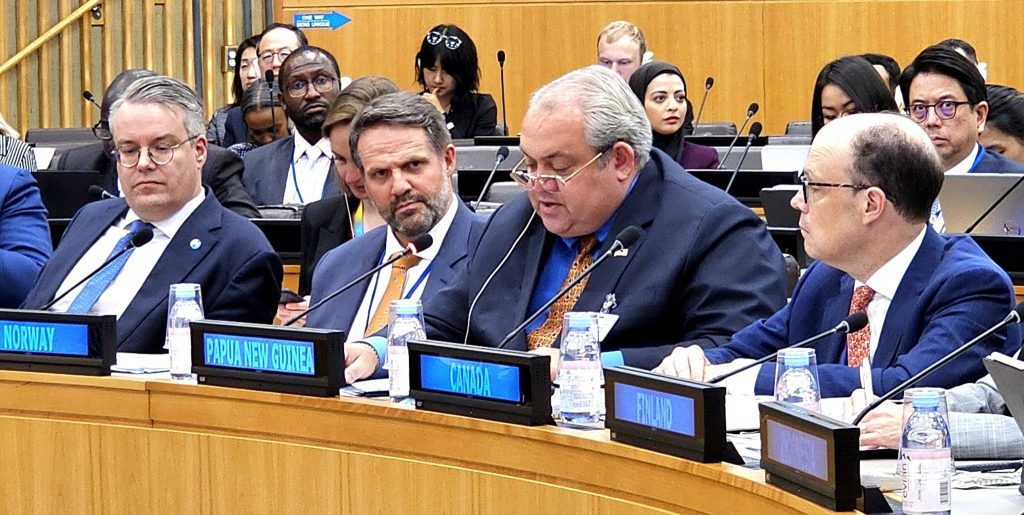Papua New Guinea has reaffirmed its commitment to a nuclear-free and peaceful Pacific region during the 11th Ministerial Meeting of the Friends of the Comprehensive Nuclear Test-Ban Treaty (CTBT).
The CTBT aims to ban all nuclear explosions worldwide, enhancing global security and promoting disarmament.
In a powerful address, Foreign Affairs Minister Justin Tkatchenko emphasized the urgent need for collective efforts towards global peace.
He expressed gratitude to the Friends of the CTBT for including Papua New Guinea in the initiative, stating, “I take this opportunity to thank the Friends of the CTBT for extending the invitation to Papua New Guinea to be part of this Event as we collectively work towards a common goal for the peace and security of the global community and for all of humanity today and for the generations to come.”
Minister Tkatchenko acknowledged the challenges faced in advancing the CTBT, particularly the non-cooperation of some states.
He highlighted Papua New Guinea’s recent ratification of the treaty, stating, “Papua New Guinea’s efforts to contribute towards more controlled and safer alternative use of nuclear weapons to benefit humanity and the world we live in was solidified when we recently ratified the Comprehensive Nuclear Test-Ban Treaty on 13 March 2024.”
The Minister also reaffirmed the nation’s commitment to the Treaty of Rarotonga, a regional agreement aimed at establishing a nuclear-free zone in the South Pacific.
He stressed the importance of a unified Pacific voice against the adverse effects of nuclear testing, saying, “We will continue to stand with the Pacific nations for a collective Pacific voice against the consequences of nuclear testing in our region and the rest of the world to build a resilient and nuclear-free Pacific community.”
Highlighting the detrimental impacts of nuclear testing, Minister Tkatchenko pointed to historical events that have affected the Pacific region.
“The Moruroa Atolls testing, the 20th century North Korean nuclear test explosions, and although not a nuclear weapon; the Fukushima nuclear reactor meltdown incident on 11 March 2011, clearly demonstrated a need for coordinated efforts for safeguarding the health and sustainability of our environment, livelihoods and protection of our sovereignty,” he highlighted.
In closing, the Minister called for solidarity among Pacific neighbors who have yet to ratify the CTBT, emphasizing that a unified stance is essential to counter the looming threat of nuclear weapons.
He concluded by reflecting on Prime Minister James Marape’s words, stating, “We cannot deny the fact that nuclear weapons buildup continues in the world today nor should we anticipate a total nuclear-free world in a few centuries ahead.”

